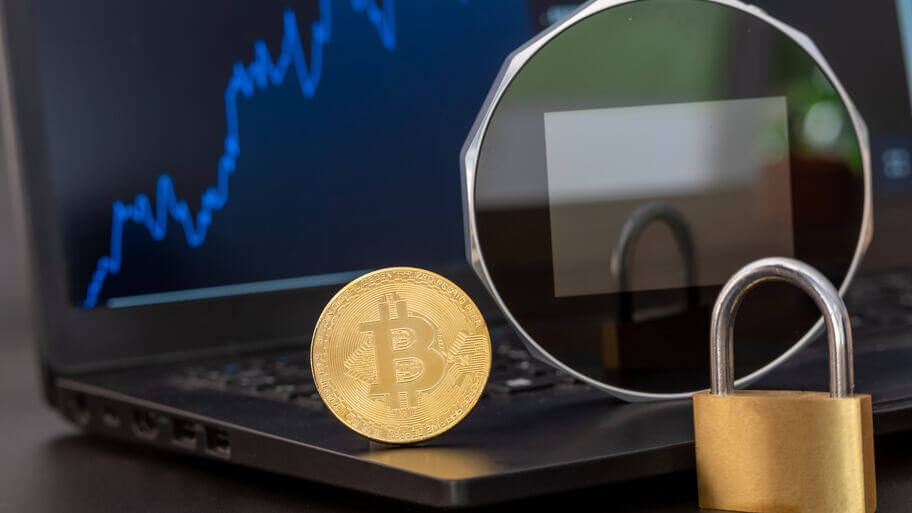Bitcoin users are often told they have two main methods when it comes to storing their assets: hot and cold wallets. But what are these wallets, exactly? How do you store Bitcoin safely? Is there such a thing as an unhackable crypto wallet? Before we explore the various ways you can keep your bitcoin safe, let’s explore the basic safety features of Bitcoin wallets and their variants.
Bitcoin Wallets and Security
As with cash or credit cards, Bitcoins are held in a wallet—a digital wallet. A crypto wallet enables you to store, transmit, and receive various currencies and tokens. Some enable basic transactions, while others offer extra functionality like built-in access to decentralized applications based on blockchain technology, often referred to as dApps. These may enable you to lend out your Bitcoin and earn interest on your holdings, among other things.
How do Bitcoin wallets keep your assets safe? Bitcoin wallets store your digital money and protect them with a unique private key that ensures that only you and anybody you share the code with can access the assets. Consider it similar to a password for an online bank account.
But not all crypto wallets have the same level of security. The two main types of wallets are hot and cold Bitcoin wallets. Let’s have a look at the key features of each and how secure they are.
Hot Wallet
A hot wallet is an online wallet that can be accessed at any time. Hot wallets include all online wallets, software wallets, and most mobile and exchange platforms.
There are risks of using hot wallets. Even though you can back up a Bitcoin wallet in case of lost passwords and restore Bitcoin wallets from private keys, they are not unhackable. That’s why you should generally only use this wallet type for storing a small amount of Bitcoin for daily use and transactions.
Cold Wallet
On the other hand, cold wallets are not connected to the internet and enable offline storage of your Bitcoin. Cold wallets make use of USB and other storage devices to store Bitcoin securely offline. Usually, it is recommended to make a USB crypto wallet if you want to cold store your Bitcoin.
A cold wallet is, to some extent, an unhackable crypto wallet, as no one can crack a Bitcoin wallet password in cold storage. Since cold wallets are maintained offline, without an internet connection, there’s no possibility of an internet hacker gaining access to your Bitcoin.
So, while a cold wallet is inconvenient in comparison to a hot wallet, it is far more secure. If you set up your cold wallet properly, there is almost no possibility of a hack.
By this logic, the safest strategy is to store the bulk of your Bitcoin in a cold wallet. You can then replenish your hot wallet periodically with enough Bitcoin to conveniently make your everyday transactions. For optimal security, cold wallets should be kept entirely offline, preferably in a fireproof safe at home.
Here we will look at two cold storage methods that you can use to keep your bitcoin safe.
Bitcoin Hardware Wallet
The most common method of cold storage is through a Bitcoin hardware wallet, which is physically separated from the internet. You can store your hardware wallet in a drawer, unconnected to your computer, and no one will be able to access your cryptocurrency.
However, once you’ve sent Bitcoin to a hardware wallet address, the only way to access your funds is to connect the device to your computer. While you can transfer Bitcoin to your hardware wallet even while it is not connected, you cannot send money off the device until it is connected.
Although cold hardware wallets have extreme security, that security is contingent upon one thing: safeguarding your seed phrase. When you “initiate” a hardware wallet, it will generate a seed phrase. The seed phrase must be used to access a Bitcoin wallet remotely. When it comes to seed phrases, the best course of action is to go old school. Handwrite your seed phrase and create one or two duplicates. Maintain one copy at home and another at a separate location. Treat it like a bank password and do not share it with anyone.
Paper Bitcoin Wallet
A Bitcoin paper wallet is the second most common method of cold storage. While a paper wallet is advantageous in that it is free, it is less handy than a hardware wallet. It’s called a paper wallet because you simply print out a piece of paper containing keys and QR codes. A paper wallet makes use of public and private keys.
For those interested in creating a paper wallet, the first step is to visit a wallet-generating website that will generate random keys and QR codes. Users typically use USBs to operate their wallets. Here’s how to make a USB crypto wallet:
-
-
-
-
- A Bitcoin user builds a Bitcoin wallet on an air-gapped computer (an offline computer).
- Once the wallet is formed, the user may construct an address, export it to a USB drive, and then connect the USB drive to a standard computer.
-
-
-
The user can send Bitcoin to the air-gapped computer’s Bitcoin wallet. Due to the wallet’s offline nature, it is classified as a cold storage solution. Therefore, even if the wallet is not connected to the internet, Bitcoin may be safely transmitted to it.
The issue is that removing coins from the wallet is cumbersome. Either connect the air-gapped PC to the internet or go through a laborious procedure of signing a transaction via the USB drive.
Tips for Storing Bitcoins Safely
In addition to protecting your keys and keeping the bulk of your Bitcoin in cold storage, you can follow these tips to keep your Bitcoin secure.
-
-
- Use a multi-signature wallet: This type of wallet requires many private keys to transfer bitcoins. It includes many added security precautions including requiring a collective agreement from several people before spending.
- Use a mnemonic seed wallet: There are wallets made from mnemonic seed; in case of loss or damage, you can quickly restore the bitcoin wallet from the private key using a twelve-word mnemonic seed. These seeds should be kept safe, as anybody who finds them can take your Bitcoin.
- Use physical Bitcoins: Physical coins and other mechanisms that employ pre-manufactured coins will have a tamper-resistant sticker that will reveal a fixed amount of Bitcoin. Each coin includes a unique Bitcoin address and a hologram with a redeemable “private key.”
- Never trade private keys: Don’t ever give out your private keys or a seed phrase to anyone under any circumstances.
- Ensure that two-factor authentication is enabled: Don’t overlook an additional critical layer of protection by failing to enable two-factor authentication, often known as 2FA, in your wallet account’s security settings.
-
Final Take
Due to its high value, Bitcoin is a prime target for hackers. Make sure to use secure passwords, two-factor verification for exchanges, and keep a significant amount of your Bitcoin offline. These measures will help ensure that you have an unhackable crypto wallet.
Featured Image: Megapixl








